5 smartest cities in the world
Based on many criteria, market research company Juniper Research has selected the 5 smartest cities in the world including Singapore, Barcelona, London, San Francisco and Oslo.
Although the term “smart city” is mentioned quite a lot, it is still difficult to determine what kind of smart city initiative is the most advanced.
UK-based market research firm Juniper Research recently awarded Singapore the title of “World’s Smartest City” after examining a wide range of data related to the city. To reach this conclusion, researchers at Juniper ranked cities according to a range of factors including the application of smart grid technologies, smart lighting, the use of information technology to improve traffic, Wi-Fi hotspots, smartphone penetration and applications.
“In terms of software applications, we look at transportation applications and city information applications that leverage open data sources,” said Steffen Sorrell, senior analyst at Juniper Research. “We apply a variety of metrics to assess transportation and energy, which we believe are the most important elements of smart cities.” To assess transportation, Juniper analysts score public transportation options and subtract points from cities with high levels of private transportation. When assessing cities’ efforts to improve transportation, they also evaluate city planners’ efforts to improve congestion, dynamic traffic lighting, street sensors, and smart parking.
Finally, Juniper Research looked at the economies of major cities around the world that have adopted smart city initiatives. “Not all cities have a budget for smart cities,” Sorrell says. “So we look at the economic outcomes of these cities and hypothesize that those outcomes will help local governments pay for future smart city technologies.”
1. Singapore
In a program launched by Prime Minister Lee Hsien Loong in late 2014, Singapore has installed a plethora of sensors and cameras across the island nation to monitor everything from cleanliness to traffic. The number of sensors installed across the island is staggering. The city can detect if anyone is smoking in a no-smoking zone or throwing rubbish from a high-rise building. But with more data, Singapore could take the concept of a “smart city” to the next level.
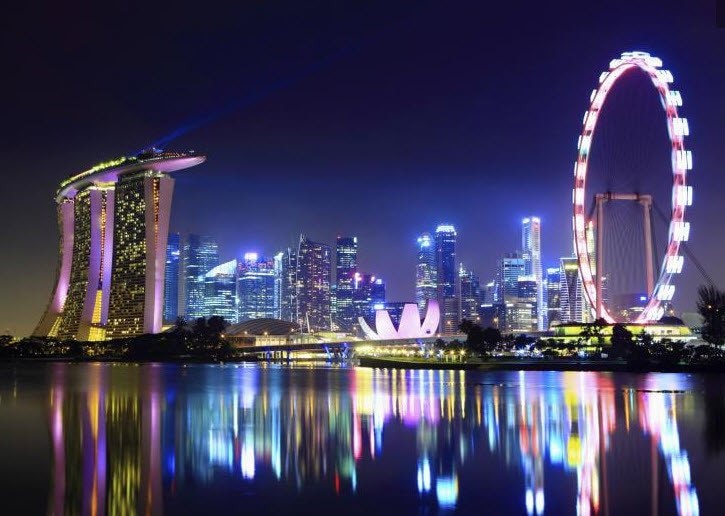 |
Juniper Research gave Singapore high marks for its smart mobility policies and technologies, as well as its wireless connectivity. In 2014, the city announced it was developing software called “Virtual Singapore,” a dynamic 3D model that allows city planners to run virtual validation tests, such as seeing how crowds would evacuate an area in the event of an emergency.
In an interview with WSJ, Singapore's Foreign Minister and Minister in charge of the Smart Nation program stated that security and privacy are major concerns for the government and that the government will ensure that data is anonymized where possible. However, a lot of data is already made public by the government, for example, citizens can watch surveillance videos to check parking...
Singapore has been aggressively implementing congestion charging and has used the money to invest in road sensors, phased traffic lights and smart parking. This is not something too surprising or new in Singapore as the country has been taking initiatives to deal with congestion since 1970. In the near future, self-driving cars will appear in this country.
Singapore is a country with a very high smartphone penetration rate. Telecommunications company Singtel recently announced that it is deploying 10Gbps fiber broadband services that can download a 2-hour HD movie in just 90 seconds. According to Mr. Sorrell, the internet here is among the cheapest in terms of broadband cost per unit of currency.
2. Barcelona
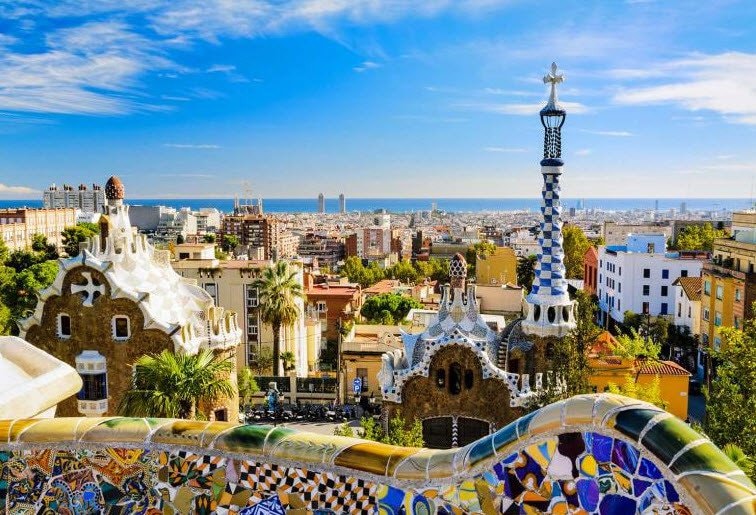 |
Barcelona uses a lot of sensors to monitor and manage traffic. City planners recently announced plans to change traffic flows and expect to reduce traffic by 21%. The city is not only using smart city technology to reduce traffic, but has also developed smart parking, smart lighting, and sensors to measure air quality and noise. Barcelona is also expanding its free Wi-Fi network in public places. In Juniper's study, the city was praised for its environmentally sustainable projects and even outperformed New York City or London.
According to Sorrell: "Barcelona's strengths are sustainable energy, smart grid projects, smart metering and comprehensive plans to reduce carbon emissions and above all the introduction of a smart LED lighting system."
Barcelona is also a pioneer in tackling drought. A few years ago, the city suffered from water shortages, so Barcelona developed a smart city sensor system for irrigation. Underground sensors analyze rainfall along with forecasted rainfall to adjust sprinklers to conserve water.
The city has made the Sentilo sensors and operating platform available online. You can learn more about the open-source software platform on Github.
3. London
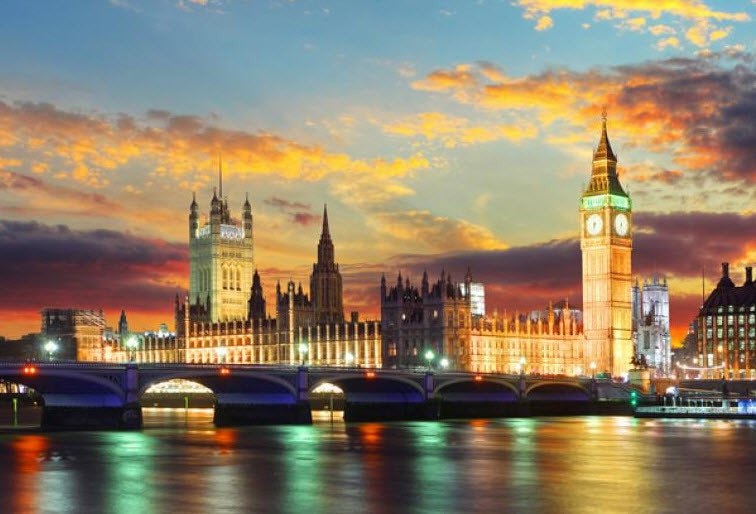 |
London has long been at the top of the list of smart cities in the world. The city has been an early adopter of technology to tackle traffic congestion and make parking easier. As one of the world's tech hubs, London has a highly developed broadband system. Recently, city planners announced plans to deploy information technology to reduce congestion. London has committed to making smart city data publicly available through the London Datastore. "For example, London has developed an app based on open data, you can tell the app where you are and the app will show you the necessary route," said Sorrel. Although it scores highly in many areas, London was downgraded because of its heavy reliance on unclean energy sources.
However, London is spending heavily on technology to solve its traffic problems. London has just announced that it will spend £4 billion on road infrastructure over the next decade, including £200 million on its bus network. The city is also investing heavily in smart transport technology. Not only do traffic lights have the ability to give buses priority to help smooth traffic, but congestion charging has been in place since 2003.
4. San Francisco
San Francisco, the city by the bay, was the first place in North America to adopt smart city technology. San Francisco’s Connected City initiative encourages citizens to find parking spots. The city also has initiatives to develop smart urban areas sustainably. It has the highest number of LEED-certified buildings in the United States.
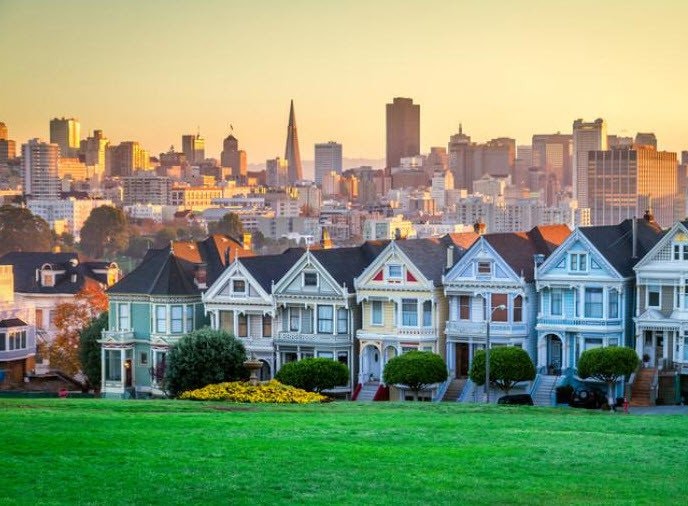 |
However, the recent tech boom has taken its toll on the city's transportation. Mayor Ed Lee is confident the city can overcome the problem and turn San Francisco into a national model for "smart transportation."
San Francisco's public transportation network, despite its age, still performs well in some areas, according to Juniper research. "The city scores highly on bus availability. San Francisco has a good payment system. You can pay online, you can pay contactless," Sorrell said. However, the city has problems with congestion, which has been exacerbated by the tech boom, which has caused the city's score to drop.
But San Francisco is a leader in smart parking. The SF Parking Initiative, launched in 2011, leverages sensors to monitor parking spaces. San Francisco uses this data to adjust parking prices based on how many spaces are available.
5. Oslo
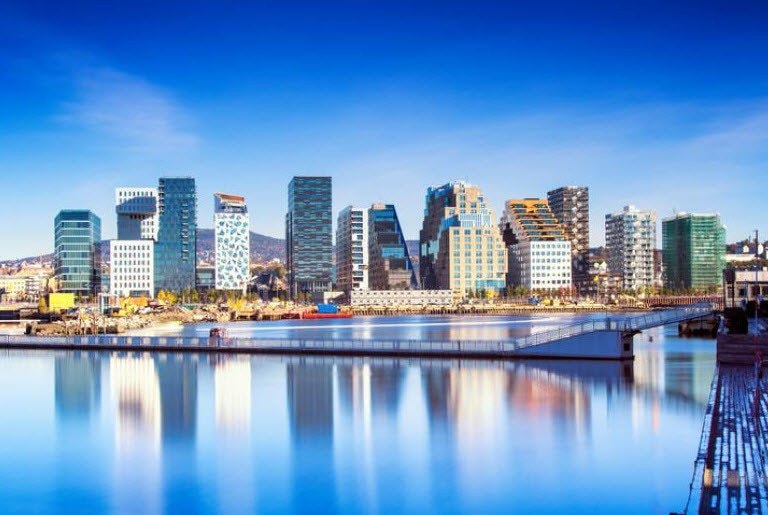 |
The capital of one of the world’s richest countries, Oslo is regularly nominated for the world’s smartest cities. The city has made strides in using information technology to reduce energy consumption and greenhouse gas emissions. Like many smart cities, Oslo has installed sensors to help with parking. The city has also established a sensor network to help improve care for the elderly and infirm. Oslo has built a smart lighting network that has reduced energy consumption by nearly two-thirds.
Oslo was one of the first cities in the Nordic countries to adopt smart grid services and has piloted several smart grid projects. It also has a comprehensive electric vehicle charging network.
The city has made headlines for its aggressive plans to cut carbon emissions and plans to ban public transport by the end of the decade. For now, the city still has a high level of private vehicle ownership.
Oslo has begun deploying smart LED lighting systems and introducing extensive sensor networks to manage traffic flow. “The city has smart parking apps and allows for mobile payments,” Sorrell said.
According to Khoahoc.tv
| RELATED NEWS |
|---|
